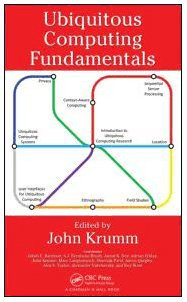
Ubiquitous Computing Fundamentals PDF
410 Pages·2009·7.93 MB·English
Most books are stored in the elastic cloud where traffic is expensive. For this reason, we have a limit on daily download.
Preview Ubiquitous Computing Fundamentals
Description:
"…a must-read text that provides a historical lens to see how ubicomp has matured into a multidisciplinary endeavor. It will be an essential reference to researchers and those who want to learn more about this evolving field." -From the Foreword, Professor Gregory D. Abowd, Georgia Institute of Technology First introduced two decades ago, the term ubiquitous computing is now part of the common vernacular. Ubicomp, as it is commonly called, has grown not just quickly but broadly so as to encompass a wealth of concepts and technology that serves any number of purposes across all of human endeavor. While such growth is positive, the newest generation of ubicomp practitioners and researchers, isolated to specific tasks, are in danger of losing their sense of history and the broader perspective that has been so essential to the field’s creativity and brilliance. Under the guidance of John Krumm, an original ubicomp pioneer, Ubiquitous Computing Fundamentals brings together eleven ubiquitous computing trailblazers who each report on his or her area of expertise. Starting with a historical introduction, the book moves on to summarize a number of self-contained topics. Taking a decidedly human perspective, the book includes discussion on how to observe people in their natural environments and evaluate the critical points where ubiquitous computing technologies can improve their lives. Among a range of topics this book examines: How to build an infrastructure that supports ubiquitous computing applications Privacy protection in systems that connect personal devices and personal information Moving from the graphical to the ubiquitous computing user interface Techniques that are revolutionizing the way we determine a person’s location and understand other sensor measurements While we needn’t become expert in every sub-discipline of ubicomp, it is necessary that we appreciate all the perspectives that make up the field and understand how our work can influence and be influenced by those perspectives. This is important, if we are to encourage future generations to be as successfully innovative as the field’s originators.
See more
The list of books you might like
Most books are stored in the elastic cloud where traffic is expensive. For this reason, we have a limit on daily download.
